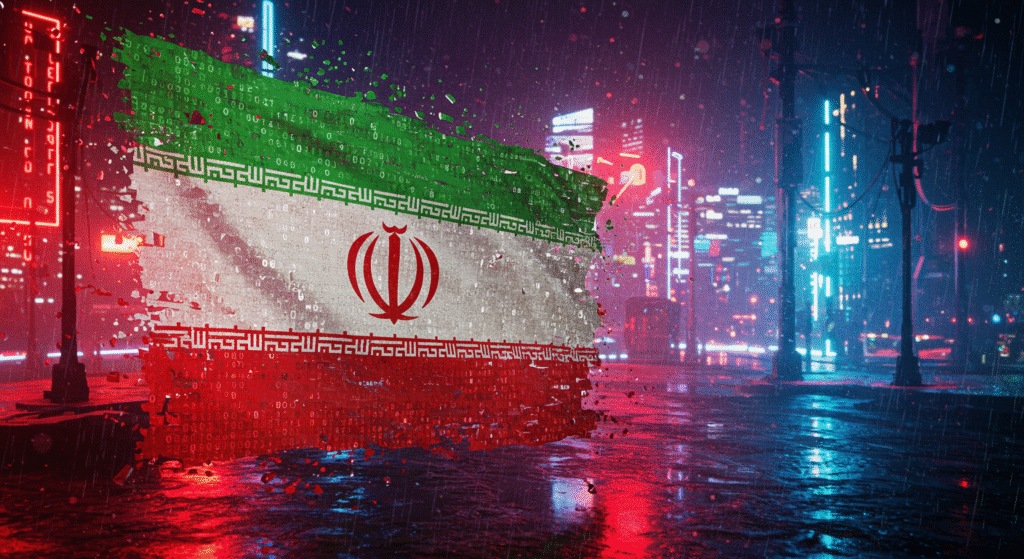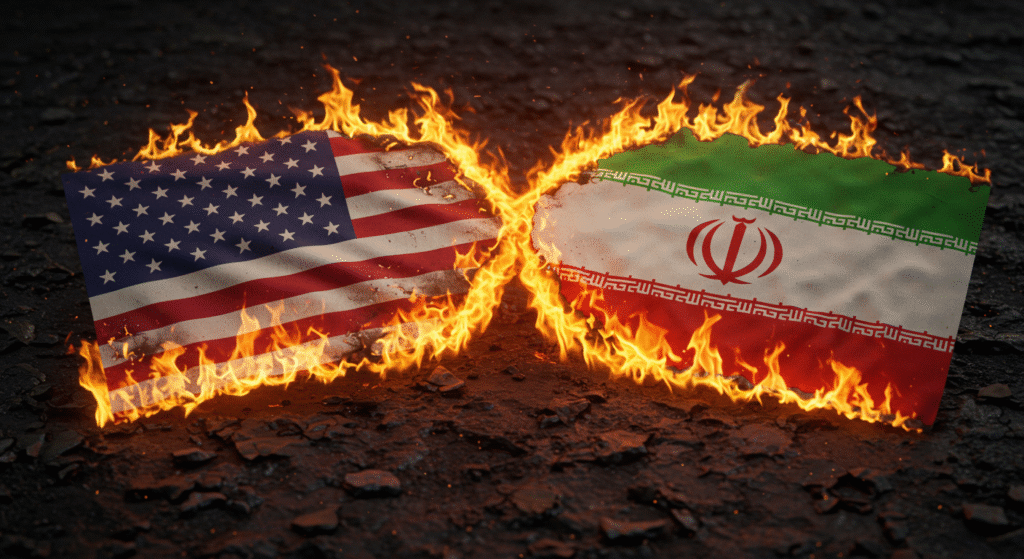The recent episode where US bombs Iran has marked one of the most tense moments in global geopolitics in recent years. The US-led attack, ordered by President Donald Trump, targeted
strategic nuclear facilities in Iran, including Fordow, Natanz, and Esfahan. The impact of this attack reverberates not only in the relations between both nations but also across the stability of
the entire Middle East region. This historic moment, where US bombs Iran, signals potential shifts in alliances and security dynamics that could resonate for decades.

Iran’s potential military response
Iranian Foreign Minister Abbas Araghchi stated that Iran has “a variety of options” in responding to the US attacks. The scenario where US bombs Iran could prompt retaliation against US military bases across the region, activate proxy groups, or potentially close the vital Strait of Hormuz, impacting global oil trade. The Islamic Revolutionary Guard Corps (IRGC) is expected to evaluate opportunities to engage US forces indirectly, minimizing direct confrontation while maximizing political and psychological impact.
Iran could reactivate proxy forces in Iraq, Yemen, and Syria. These groups, previously used to counterbalance US and Israeli influence, remain tools of strategic value. Analysts warn that a wider deployment of such forces would increase instability, potentially triggering further US or Israeli responses. The possibility of increased drone and missile strikes on US installations remains high, particularly as tensions escalate.
Risk of regional escalation
The attack where US bombs Iran could see the IRGC engage in asymmetric warfare, including cyberattacks or terrorism. Iran’s weakened missile stockpiles might shift its strategies toward non-conventional responses such as disrupting regional infrastructure, targeting communication networks, or launching cyber campaigns aimed at sensitive US assets. These tactics allow Iran to retaliate while reducing the risk of large-scale conventional warfare.
Regional partners of the US, including Saudi Arabia and the UAE, could find themselves vulnerable as Iran expands its retaliatory scope. Hezbollah, though weakened, might also reemerge as a player in this escalating conflict, opening another front that complicates US and Israeli defense strategies.
Oil market disruption
A scenario where US bombs Iran raises fears about disruption of global oil supplies. Closing the Strait of Hormuz could shock oil markets, drive inflation, and threaten economic stability worldwide. About 20 million barrels of oil transit this vital waterway daily, and its closure would halt a significant percentage of global exports. Iran’s geographic leverage could severely impact economies heavily reliant on Middle Eastern energy.
Financial markets are already reacting to fears of long-term disruption, with oil prices spiking and investors seeking safer assets. Shipping companies are reassessing routes and insurance costs as the risk of conflict spreads. The broader economic ripple effect could challenge governments worldwide, including US allies dependent on stable energy flows.

Race towards nuclear armament
Experts argue that the instance where US bombs Iran may accelerate Tehran’s push for nuclear weapons. With diplomacy stalling and regional tensions soaring, Iran could withdraw from the Nuclear Non-Proliferation Treaty and seek nuclear capability as a deterrent. Some analysts suggest that hardliners within the Iranian regime will gain greater influence, pushing policies that prioritize military strength over negotiation.
Should Iran pursue rapid enrichment of uranium, regional powers such as Saudi Arabia might consider launching their own nuclear programs, creating a proliferation risk unprecedented in modern times. The balance of power in the Middle East would shift dramatically, complicating international non-proliferation efforts.
Focus on Israel and strategic patience
Instead of targeting US forces directly, Iran might continue strikes on Israeli targets, hoping to avoid full-scale war with the US while inflicting damage on its regional adversary. Early reports indicated missile attacks on Tel Aviv causing injuries, a pattern that may repeat as Iran seeks to demonstrate resolve without provoking overwhelming retaliation.
Iran’s actions may also aim to test Washington’s appetite for sustained engagement. Tehran could adopt a war of attrition strategy, forcing the US into prolonged commitments that strain its military and political will, echoing challenges seen in earlier Middle East interventions.
Cyberattacks and terrorism as tools of retaliation
Military analysts believe that asymmetric measures, including cyberattacks, could become central to Iran’s response. Previous incidents show Iran’s capability in targeting infrastructure abroad. Potential attacks on power grids, financial institutions, or communication systems could cause disruption beyond the battlefield. The instance where US bombs Iran might trigger sleeper cells or sympathizers to act globally, creating new security challenges for Western nations.
The uncertain future of diplomacy
With US bombs Iran, prospects for renewed nuclear talks appear bleak. Iranian officials have indicated that the attack undermines diplomatic efforts, with a shift towards more aggressive postures likely. The US, while maintaining it seeks to prevent nuclear proliferation, risks closing doors to dialogue essential for long-term regional stability.
European powers and other global actors may attempt mediation, but trust deficits on both sides make breakthroughs unlikely in the near term. The international community watches closely, aware that the choices made now could determine the region’s trajectory for years to come.
The global reaction
As the world processes the fact that US bombs Iran, nations are issuing statements urging calm while preparing contingency plans. NATO allies express concern about escalation, while rivals like Russia and China call for immediate dialogue. The United Nations has convened emergency sessions to address the rapidly evolving crisis, reflecting its gravity on the global stage.
The economic fallout is already visible, with markets fluctuating and governments assessing the need for strategic reserves of oil and other commodities. Humanitarian groups warn of the potential for civilian suffering should the conflict spread.
Conclusion: A world at a crossroads
The decision where US bombs Iran marks more than a military operation; it represents a turning point with implications for global security, diplomacy, and economic stability. The coming weeks will be critical in determining whether cooler heads prevail or if the world enters a period of prolonged instability fueled by miscalculation and entrenched rivalries.
Read also: Investing During Recession: Strategies to Minimize Risks in Volatile Markets
Read in Portuguese: EUA ataca Irã: entenda como a ação pode mudar a história do Oriente Médio

Pingback: EUA ataca Irã: entenda como a ação pode mudar a história do Oriente Médio - 123Mudar | Dicas e Tendências para Transformar Sua Vida
Pingback: NATO prepares for war with Russia: a new chapter in global security - TrendX3 - Discover the Main Trends of the Moment